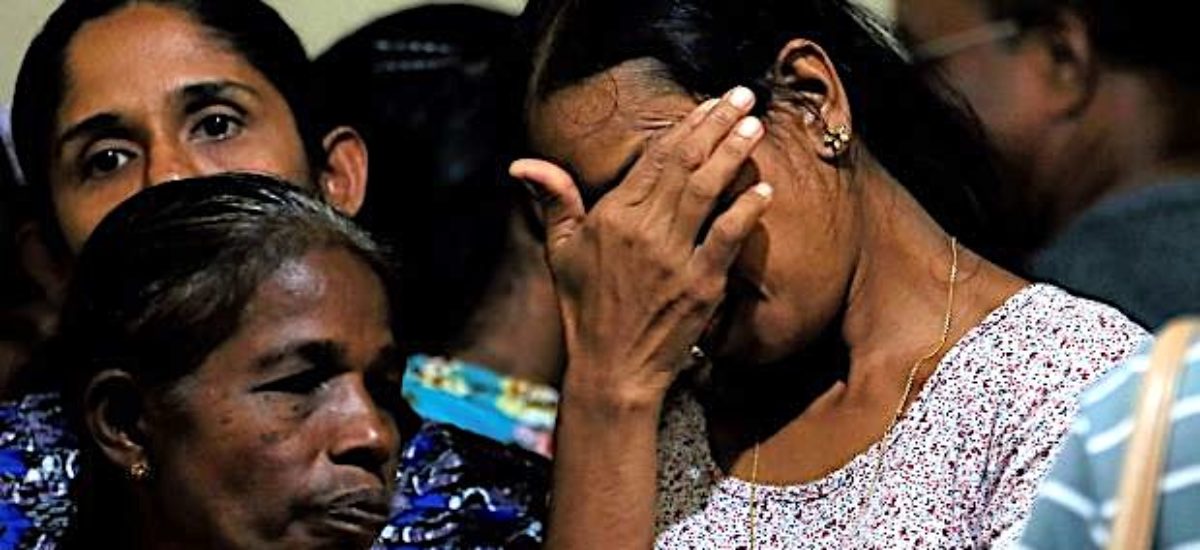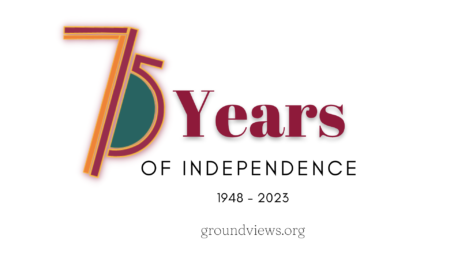Photo courtesy of Kalinga TV
Some countries have a Ministry For Women’s Affairs. Some call it The Department of Women’s and Children’s Affairs. Some countries do not even have a token ministry to uphold the welfare and status of women and girls. Women’s organizations hold conferences and empowerment summits and global forums. Women carry the burden of childcare and raising children. Children are violated, abused and preyed upon. Working women without cars and drivers are harassed at work and on public transport going to work and returning home from work.
Women are not safe in their own homes. They do not often own their own homes although their labour substantially contributes to its upkeep. They cannot leave abusive relationships because they have no economic independence. They are forced to remain in untenable situations, placating their abusers. The fruits of societal progressiveness do not come their way. Women form more than 50% of the population in numbers but are routinely categorised as a “minority”, and their concerns are marginalized and dismissed.
The misogyny that has been normalized in many societies is seen at every level and every process in society. Secondary status is felt, far more often than it is seen. Many suffer in imposed and enforced silence.
When we look at recent human history, we can see both statistically and through anecdote that women – unless they are unusually privileged – live a half life, usually in the service of others. And that this inequity is perpetuated by the laws and the traditions and customs of the land.
Sri Lanka has been through some very difficult days since independence. But some of its citizens have never known any personal independence or autonomy or free agency in their lives. They are short changed and underestimated at almost every stage of their personal development.
What does independence mean? On a personal level, it means being able to look after oneself without needing primary assistance from another person. On a national level, it means autonomy and sovereignty. It means standing up, standing upright: self standing.
Sri Lanka in recent times, afflicted concurrently by terrorism, natural disasters, petrol and fuel crises and now economic meltdown, has cared a lot about how it appears to the world; not wanting to seem like a beggar nation, asking for help from international monetary funds and superpowers with vested interests and personal agendas of their own.
I would suggest that the measure of a nation’s pride and dignity is not only economic and financial or seen in the public display that is put on during public events but in the everyday social and cultural context it creates for its citizens, particularly the most vulnerable and defenseless.
Many young people, particularly women and girls, feel trapped, and even cursed, as they express it on social media, despite being told to be patriotic, keep believing in and accepting structures and systems which belittle them and not display their weakness to the world. Those who have the means are applying to go overseas, and those who do not feel left behind.
Independence for women in Sri Lanka means something unique. To be able to dress as one wishes, act as one wishes (within the law), speak one’s mind, to expect respect from men whether intimate partners or strangers on public transport or in the workplace – these signs of independence do not seem evident in the country and the country is losing a lot of value as a result.
Women and girls and children are frequently abused and harassed and the terrible incidents that are reported so explicitly in the print newspapers and discussed online give the impression that these are the visible signs of a violent and brutal society in which the vulnerable are not safe.
Every time a dead body is found washed up on the beach or left prominently in a public place, it is psychologically in a significant way a lessening of the status of the country. If we truly want to progress as a society, we cannot always say – as authorities routinely say in other countries – that the violent incidents we are confronted by are the results of the criminal acts of unhinged individuals.
Systemic violence, the normalization of disrespect for human life, the routine objectification of women, the callous exploitation of children and women and the utilization of them in the sex industry are violations of the rights of our citizens to live in safety and with dignity.
The reporting of unacceptable behavior and the conduct of law enforcement authorities while processing complaints often adds to the disrespect felt by the targets of assault and harassment. Better training in consent and sensitivity needs to be implemented, to ensure that laws – which themselves urgently need updating and modernization – are actually effective in upholding citizens’ rights in the contemporary society of Sri Lanka.
What real independence is actually possible for women, girls and children in this country who are dependent on men who are often crude and violent in their thinking and conduct? What pathways of independence are possible in such an entrenched patriarchy for non-privileged women?
Financial education, moral education, awareness of their personal and civic rights – and not just their duties and responsibilities – which society is so good at highlighting and enforcing, from dress codes to policing social conduct and words, are all aspects of independence and agency which are yet to be implemented in women’s lives across all social classes in a consistent way that changes people’s minds and actions. And the perpetrators of abuse need to be simultaneously educated about their social and moral responsibilities, which many seem to have missed on their pathway to education and adulthood.
Until then, the only independence many women have experienced is in the form of a dimly perceived, stylised version of Western feminism viewed in films or DVDs. They then return from their workplace to a home environment where they are coerced, intimidated and mistreated. Emphasizing that they live in a trapped situation, glimpsing blue sky from other people’s descriptions of what they themselves have not experienced.
Only the most resilient can hope for a better future and try to equip themselves for it. Dealing with boyfriends and workmates whose minds are rotted by pornography and whose attitudes are degraded by what is held up to them as normal by many abusive men who are called “role models” in our society, these young women’s aspirations for real independence are far from being realized.
Women in Sri Lanka are currently living not in the paradise isle presented by the Tourism Board to overseas visitors but in what amounts to its diametrical opposite. Insulated by their wealth, many women of high social standing are desensitized to this sad situation. NGOs and activist-led community building are going some way to exposing this but greater collaboration and coalescence are needed going forward.
The non-independent status of women in Sri Lanka undermines and fractures the progress of the country. Anyone who behaves in such a way as to continue that undermining, trivialize the oppression of women or cover it up under outdated truisms, double standards and sexist hypocrisy is no true patriot.
Men who behave in a damaging way to women both publicly and privately are making it impossible for women to be upstanding citizens. Women who internalize misogyny and diminish the concerns of other women are making it worse. How can women stand up for themselves when their status is continually attacked and undermined?
A society which is truly independent would uphold the dignity of all its citizens and embody the values of compassion and loving kindness to all that its citizens profess and proclaim.


